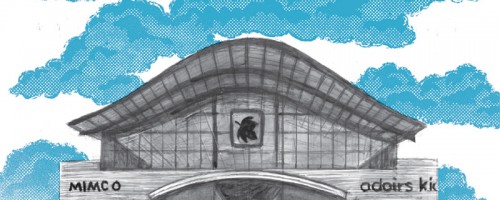
- Type
- Fiction
Jab. ‘$679. Your original price.’
Jab. ‘$649. Your reduced price.’
Jab, jab. ‘$629. Your additional discount from your $20 gift card.’
I was pretty sure he was wrong. I thought he’d rung up $20, not $629. But the bill was a little too far away for me to see it clearly and he was making such a big thing about it in front of all those people that I just apologised, another middle-aged sans papiers among the digital natives. He folded my receipt back into the bag and smiled.
Often, when asked what I do for a living, I say I am a writer as well as a translator. It is not a word that I would use in my native language: the Italian ‘scrittore’ is far too grandiose. It implies that you have published at least one book, probably more, whereas the English word ‘writer’ covers a larger semantic field, encompassing people who write habitually for a public in various media domains, such as this journal.

















